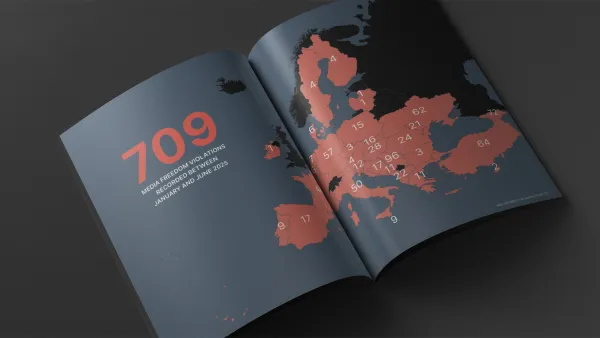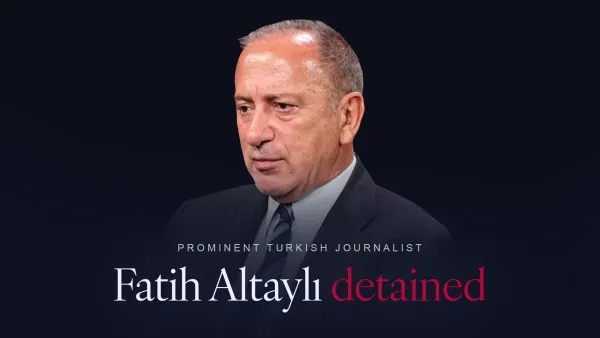Internet freedom in Turkey remains fragile, despite a small uptick in certain connectivity metrics. The recently published Freedom on the Net 2024 report confirms the country’s status as “Not Free,” a sobering assessment that underscores how deeply the government’s grasp over digital spaces has tightened. While mobile speeds may have improved slightly, the ability to freely access information and express oneself online has, for many, never been more constrained.
Turkey’s internet governance is no stranger to surveillance, censorship, and systematic suppression of dissent. One of the report’s most alarming findings is the government's increasingly authoritarian stance, manifested through laws that both criminalise online expression and amplify censorship. While the country's infrastructural improvements have been noted—such as increased mobile internet speeds and higher broadband penetration—the deeper issue lies in how this infrastructure is controlled and weaponised by the state.
The Rising Costs of Censorship
It is critical to recognise the weight of Turkey’s draconian digital policies. Between June 2023 and May 2024, the government blocked 17 VPN services without court orders, imposed multiple content removal orders, and handed prison sentences to Kurdish politicians, all based on social media activity. Selahattin Demirtaş and Figen Yüksekdağ, former co-chairs of the Peoples’ Democratic Party (HDP), are but two among many prominent voices silenced, sentenced to prison terms of up to 42 years.
Furthermore, the government in Turkey’s crackdown on media freedom is particularly evident in its treatment of Kurdish journalists and news outlets. The report reveals a systematic pattern of censorship, with Kurdish media platforms such as Mezopotamya Agency facing frequent blocking. For instance, in March 2024, a court order blocked access to its website under the guise of “protection of national security and public order.” Additionally, independent outlets like Yeni Yaşam have been blocked multiple times, with the latest incident occurring in July 2023. These actions reflect a broader trend of silencing critical voices, as evidenced by the legal threats faced by journalists in Kurdish-majority regions. Many have been prosecuted for their reporting, particularly when it pertains to sensitive political issues. This environment of fear and repression effectively stifles public discourse and undermines the principles of free expression in Turkey
The targeting of VPN services in this period is particularly troubling. These tools, widely used by internet users in Turkey to circumvent censorship, have become critical for maintaining access to blocked news sources and social platforms. By banning these services, the government is making it clear that any efforts to escape its surveillance apparatus will be met with swift retaliation. Moreover, the impact extends beyond individual users—VPNs are also essential for businesses, especially banks and other financial institutions, which rely on secure and encrypted communications to operate efficiently. Blocking VPNs risks disrupting international financial transactions, jeopardising secure data exchanges, and ultimately harming the Turkish economy by hindering the secure operations of these institutions. This chilling effect on critical sectors reveals how such policies, while aimed at controlling information flow, may inadvertently destabilise essential economic systems in an already fragile economic landscape in the country.
Moreover, the new regulatory framework governing platforms like X (formerly Twitter) and Instagram demonstrates the broad scope of Turkey’s digital crackdown. These platforms faced advertisement bans until they complied with Turkey’s demands to open local offices, effectively forcing them into aligning with local censorship laws.
The Price of Expression
The government’s punitive measures against social media users, journalists, and politicians illustrate how dangerous online expression has become. The Freedom on the Net report details the story of 20 Kurdish politicians sentenced to decades in prison simply for social media posts dating back to 2014. The irony is palpable—social media, once a tool of empowerment and mobilisation, has now been weaponised against its users in countries like Turkey.
These restrictions stifle not only political discourse but also the ability of marginalised communities to raise their voices. The crackdown on LGBTI+ content on streaming platforms, for instance, highlights the government's broader strategy of silencing dissenting or minority voices. In 2023, Turkey’s Radio and Television Supreme Council (RTÜK) fined platforms like Netflix and Blu TV for content featuring LGBTI+ characters, under the guise of protecting "family values".
This targeting of marginalised communities is emblematic of a larger trend: the systematic suppression of any group or individual that challenges the government’s narratives.
A Path Forward
Turkey’s internet remains, as the report points out, "not free." For 14 years in a row, globally there is regression in the field of digital rights and liberties; Turkey sets an even harsher example with being one of the countries that experienced one of the harshest declines in the past decade. While infrastructural advancements may have brought faster connections, these are overshadowed by a legal framework that restricts online expression, a judiciary that operates under political pressure, and a population increasingly fearful of speaking out.
In response, there is a growing need for human-focused reforms in Turkey’s internet governance. A shift toward protecting rights and liberties, rather than eroding them, must be the focus of any future legislation. Laws must be created to guarantee freedom of expression, foster digital literacy, and ensure an open internet that serves as a platform for all voices, not just those aligned with the ruling party.
As Turkey continues to straddle the line between authoritarianism and democracy, its internet policies will play a defining role in shaping the country’s future. The current trajectory of repression cannot continue if Turkey wishes to safeguard its democratic fabric. The call is clear: Turkey’s digital space must be liberated for the benefit of all its citizens.








